
The leadership of the Ukrainian state should return to the idea of creating a separate capable analytical center to study the problems of the Russian Federation, Ambassador of Ukraine to the United States (2015-2019) Valeriy Chaly said.
“Scientific analytical centers, serious ones, should work with the NSDC apparatus and, in fact, under the patronage of the president. I would definitely return to the idea and quickly create a capable analytical center on Russian problems. It should be separate, – this is obvious. It is clear that the Institute for Strategic Studies exists, but its ability to submit proposals directly to the president is limited,” Chaly said at a press briefing, titled “NSDC is an Effective Tool that Protects the Interests of the State. New Threats and Challenges to Security” on Wednesday.
At the same time, he emphasized the need to strengthen the vector of foreign policy and international security “from the point of view of forecasts and scenarios in a world that is rapidly changing.”
“We have a weak analysis of what is happening in Asia, that is, in this entire region, which will become key in the next ten years and is beyond our attention,” Chaly said.
In general, in his opinion, Ukraine needs to strengthen the efficiency of public administration.
“I would like to see an increase in the efficiency of public administration through the president’s decision. Today this is a challenge that I would like to draw attention to. In context of an external attack, which comes not only from Russia (from Russia it is an obvious military threat, but there is also from other countries even), the effectiveness of the entire apparatus in the field of security and defense is a key issue that needs to be worked on now,” the diplomat said.
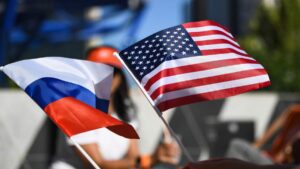
The Russian-American summit in Geneva on June 16 will last five hours, according to the protocol program.
Russian President Vladimir Putin’s arrival at the Villa La Grande and a joint photo session with United States President Joe Biden and Swiss President Guy Parmelin are scheduled for 1:00 p.m. local time, according to documents released by the Kremlin press service ahead of the event.
The conversation between the U.S. and Russian presidents on the ground floor in a library is due to begin at 1:15 p.m.
The Russian-U.S. talks in an expanded format are schedule to begin at 2:30 p.m.
These talks will resume after a break at 4:15 p.m.
The Russian president’s press conference is due to begin at 6:00 p.m.
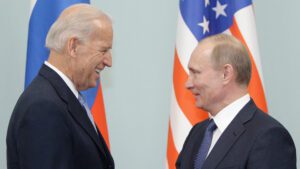
A meeting between U.S. President Joseph Biden and Russian President Vladimir Putin, scheduled for June 16 in Geneva, will be devoted to developing rules for their confrontation that are manageable and predictable for both sides, both in Ukraine and on a number of other international issues, political scientist believes, Director of the Institute of Global Strategies Vadym Karasiov said.
“The point of the Biden-Putin meeting will be to develop rules for the confrontation between the United States and Russia so that this confrontation is manageable. This also applies to Ukraine, judging by Putin’s recent interview. It should be understood that Ukraine remains for a long time a territory where the interests of the United States and Russia will come into contact. It is important for Biden and Putin to understand the limits of this influence and to make the overlapping of their interests more predictable and manageable and not turn into direct or even military clashes,” “Karasiov told Interfax-Ukraine.
According to him, it will also be important for the Russian President to hear from the U.S. President about his plans to provide Ukraine with the NATO Membership Action Plan (MAP).
According to political scientist, Director of the Ukrainian Barometer sociological service Viktor Nebozhenko, “one should not expect sensations from the meeting between Biden and Putin, although the background itself and the upcoming negotiations will be quite sharp.”
“There are exaggerated expectations against an overly aggressive background. Biden fears the Republican party, which, criticizing him, is gaining strength. In turn, Putin fears losing control over gas transit, as once happened with Gorbachev [Soviet President Mykhail Gorbachev]. As a result of their meeting, there will be no easy decisions on certain issues. There will be an intricate text of the communique, a general press conference, but we will not get something that would give us the opportunity to draw quick conclusions,” Nebozhenko said.
According to the political scientist, “sensations should be expected by the autumn.” “After Putin and Biden, other players will come to the fore, namely, China, the EU countries, even Ukraine, each with its own political party.”
According to expert of Hardarika Strategic Consulting Corporation Kostiantyn Matviyenko, in the conversation between the presidents of Russia and the United States around Ukraine, the key issue will be the Nord Stream 2 gas pipeline on the bottom of the Baltic Sea.
“They will try to find such a mechanism so that Russia does not ‘lose face’ in the gas pipeline construction, and the United States can show that they ensure the security of Ukraine,” he told the agency.
Matviyenko said the leaders of Russia and the United States will focus, in addition to Ukraine, on the issue of resuming the nuclear deal with Iran, the Russian initiative to ease sanctions, “since they are” hitting “its technical capabilities in the military sector,” as well as Russia’s access to world food markets and seeking informal quota arrangements.
According to PhD in Political Science, political scientist Ihor Petrenko, the talks between the presidents of the United States and Russia “will most likely focus on environmental issues, since it is in this that they can reach consensus and progress.”
“If you recall, Putin devoted a significant part of his address to the Federal Assembly in April to ecology. It was a kind of pass towards Biden. And ecology is one of the electoral promises of the U.S. leader, important for his political agenda,” he told Interfax-Ukraine.
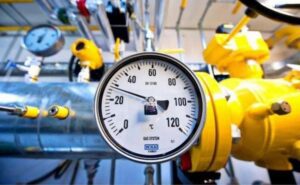
The Slovak Republic has always been a reliable transit country for Russian gas to the West through Ukraine, and it is interested in maintaining this transit through Ukraine, said Prime Minister of Slovakia Eduard Heger.
“As for the Nord Stream 2 Project, it is not in the hands of Slovakia to decide. Slovakia has always been a reliable transit country for the Russian gas to the West through the territory of Ukraine and we are definitely interested in keeping this gas transit through Ukraine. We believe the transit contract between Russia and Ukraine will be fulfilled further on,” Heger said in an exclusive interview with Interfax-Ukraine.
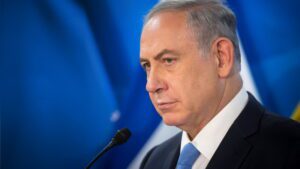
The Ukrainian authorities have offered Israeli Prime Minister Benjamin Netanyahu to become a mediator during the negotiations between Kyiv and Moscow, Ukrainian Ambassador to Israel Yevhen Korniychuk said on the Israeli TV channel i24NEWS.
The diplomat explained that this decision is due to the fact that Netanyahu has good relations with both President of Ukraine Volodymyr Zelensky and President of the Russian Federation Vladimir Putin.
“I am glad to report that the prime minister did not say no. He said that he would try to do everything in his power. We are glad that Mr. Netanyahu did not reject this mission, but on the contrary, he showed his interest and willingness to help,” noted Korniychuk.
As reported earlier, Israeli Prime Minister Benjamin Netanyahu called for the expansion of friendship and cooperation with Ukraine.
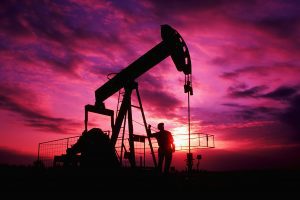
Ukraine in January-March 2021 imported 1.812 million tonnes of petroleum products (according to foreign economic activity code 2710: petrol, diesel fuel, fuel oil, jet fuel, etc.), which is 10.4% more year-over-year (1.642 million tonnes). According to the State Customs Service, petroleum products were imported to the tune of $894.99 million, which is 8.2% less than in January-March 2020 ($ 975.061 million).
Fuel was imported from Belarus for $416.163 million (the share is 46.5%), Russia for $283.626 million (31.69%), Lithuania for $85.767 million (9.58%), other countries for $109.434 million (12.23%).
In addition, Ukraine exported 113,426 tonnes (49.4% compared to January-March 2020) of petroleum products for a total of $53.49 million (17.4%). The cost of fuel delivered to counterparties from Turkey amounted to $12.338 million, the Czech Republic some $11.778 million, Latvia some $10.936 million and other countries to $18.438 million.